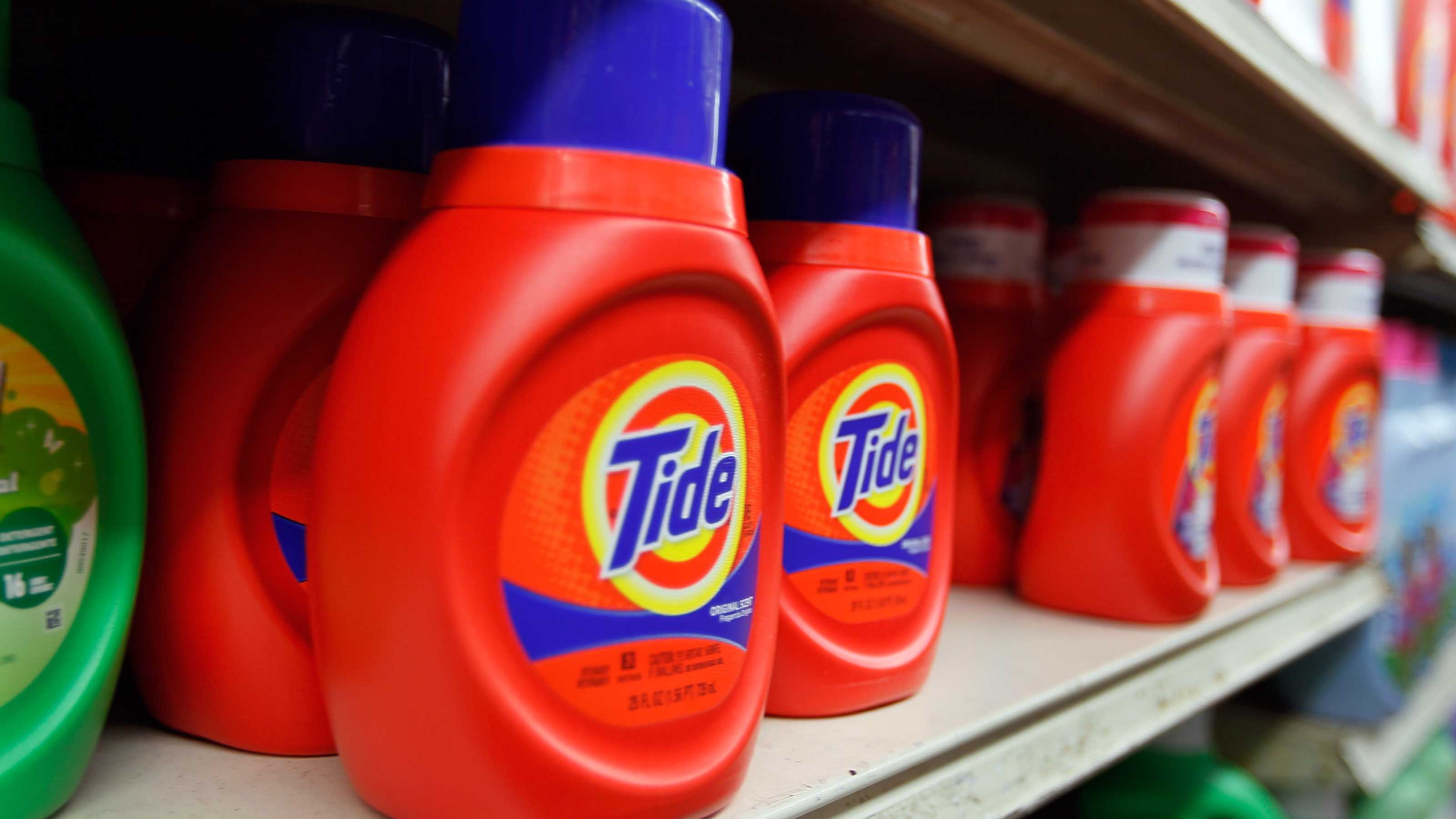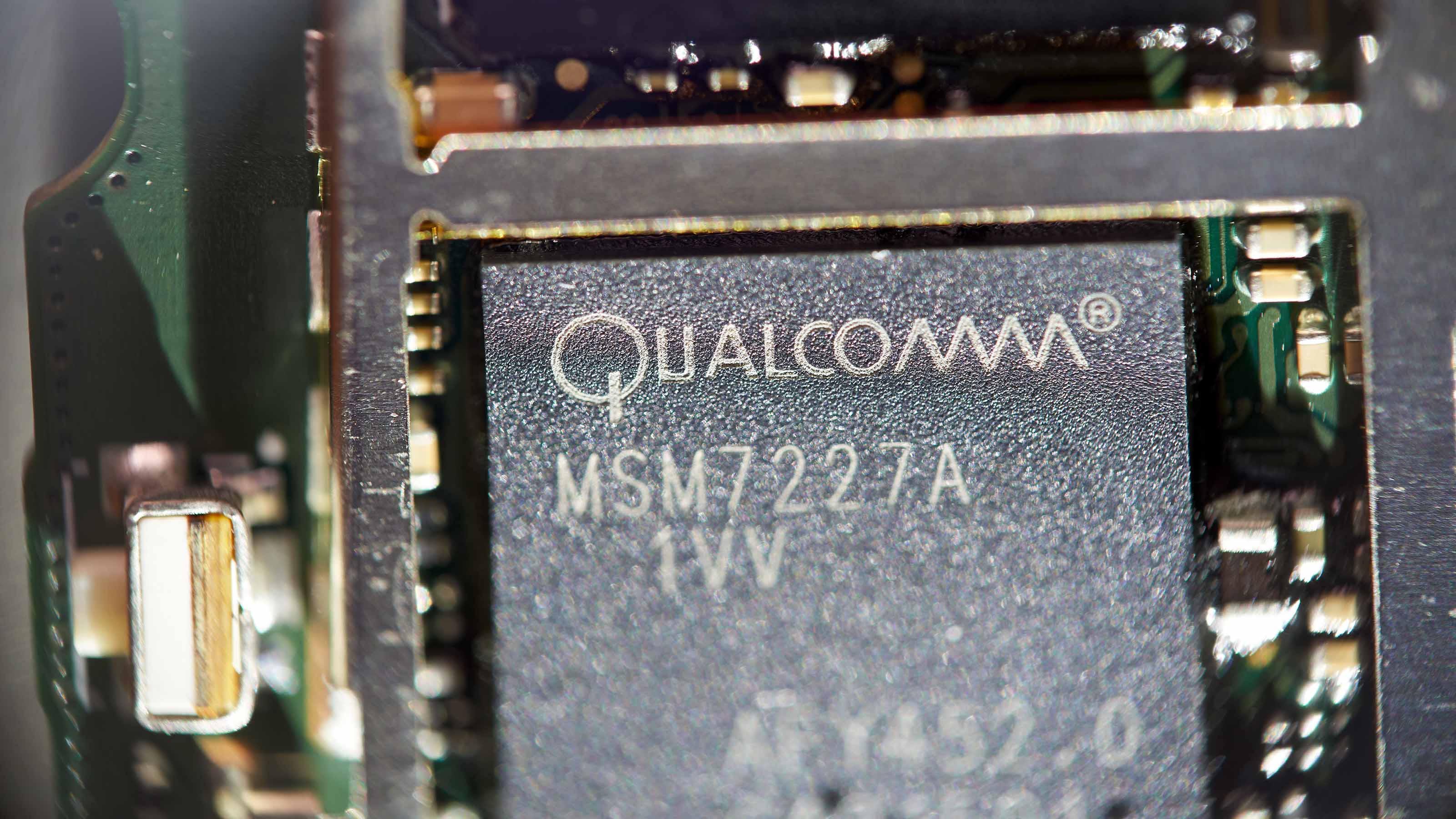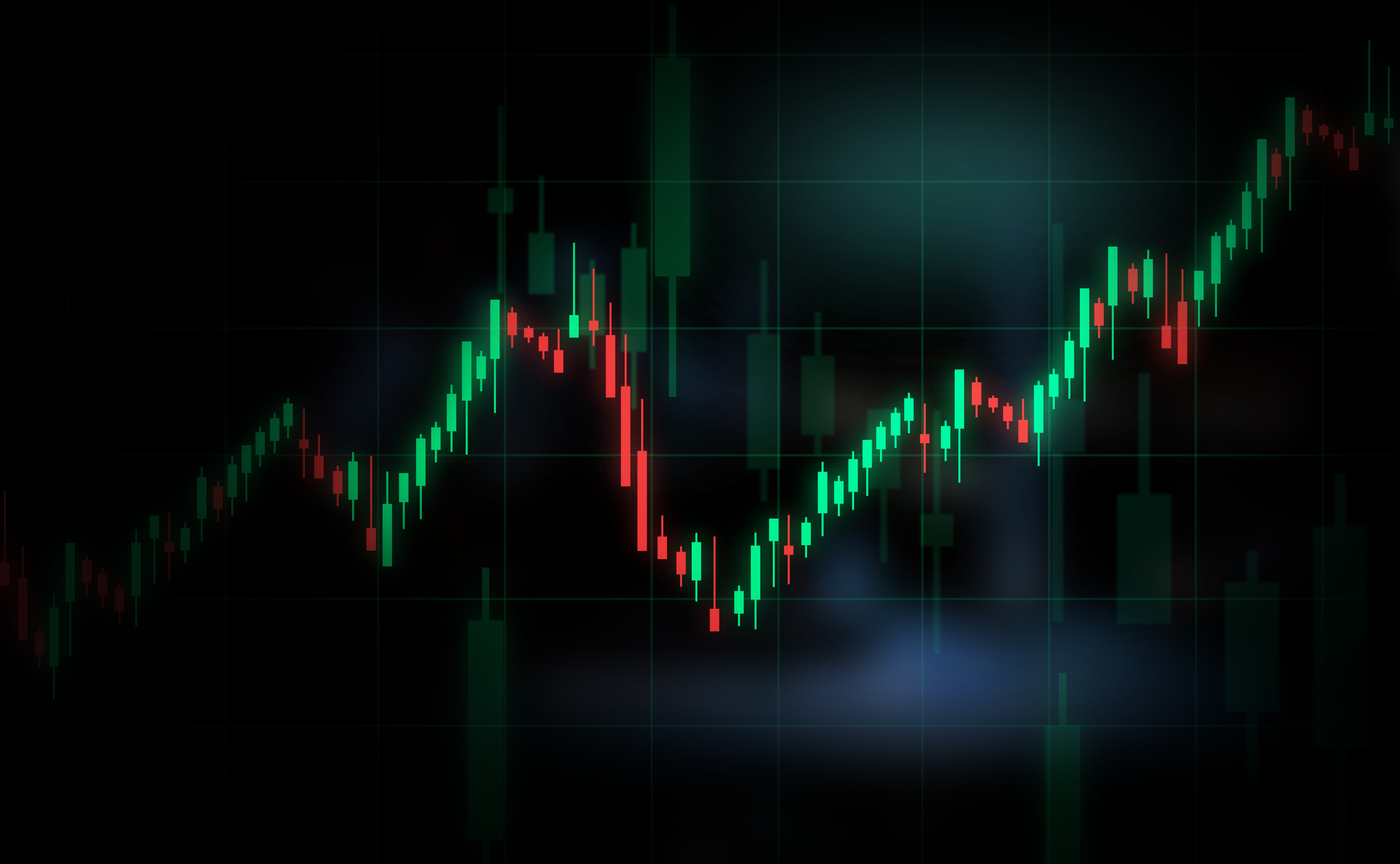19 Top Stocks for a Weak U.S. Dollar
A weak dollar can prop up the financial results of U.S. multinationals that do a brisk overseas business. These are 19 of the top stocks for a struggling greenback.


Profit and prosper with the best of Kiplinger's advice on investing, taxes, retirement, personal finance and much more. Delivered daily. Enter your email in the box and click Sign Me Up.
You are now subscribed
Your newsletter sign-up was successful
Want to add more newsletters?

Delivered daily
Kiplinger Today
Profit and prosper with the best of Kiplinger's advice on investing, taxes, retirement, personal finance and much more delivered daily. Smart money moves start here.

Sent five days a week
Kiplinger A Step Ahead
Get practical help to make better financial decisions in your everyday life, from spending to savings on top deals.

Delivered daily
Kiplinger Closing Bell
Get today's biggest financial and investing headlines delivered to your inbox every day the U.S. stock market is open.

Sent twice a week
Kiplinger Adviser Intel
Financial pros across the country share best practices and fresh tactics to preserve and grow your wealth.

Delivered weekly
Kiplinger Tax Tips
Trim your federal and state tax bills with practical tax-planning and tax-cutting strategies.

Sent twice a week
Kiplinger Retirement Tips
Your twice-a-week guide to planning and enjoying a financially secure and richly rewarding retirement

Sent bimonthly.
Kiplinger Adviser Angle
Insights for advisers, wealth managers and other financial professionals.

Sent twice a week
Kiplinger Investing Weekly
Your twice-a-week roundup of promising stocks, funds, companies and industries you should consider, ones you should avoid, and why.

Sent weekly for six weeks
Kiplinger Invest for Retirement
Your step-by-step six-part series on how to invest for retirement, from devising a successful strategy to exactly which investments to choose.
Historically, the U.S. dollar has been among the safest and most respected currencies in the entire world. That preferred status likely will not change significantly anytime soon, given America's comparatively strong economy and stable government.
However, it's worth noting that we've been sliding into a weaker-dollar environment for months, ever since the coronavirus pandemic struck in earnest this spring. Case in point: The U.S. dollar index – a measure of the greenback vs. a basket of other currencies including the euro and the Japanese yen – has declined about 10% since March.
This current dollar fragility does have an upside. As America's currency falls out of favor, other international currencies become more attractive. Companies that book sales in these currencies across Europe, Asia and elsewhere, then get a small boost as those revenues are translated back into dollars. Such firms can be some of the top stocks to buy if you're anticipating a weak U.S. dollar.
It's a small difference, to be sure, and the dollar's strength fluctuates daily based on market trends. But when you're a multinational corporation doing billions in revenue, even a few percentage points add up in a hurry.
Here are 19 of the top stocks for a weak-dollar environment. If you're an investor in one of the following 19 multinational stocks, each of which derives more than half of its sales outside the U.S., this could be a trend to watch for and a catalyst for potential outperformance versus their more domestically minded peers.
Data is as of Aug. 9. Dividend yields are calculated by annualizing the most recent payout and dividing by the share price.

Alphabet
- Industry: Internet services
- Market value: $1.0 trillion
- Dividend yield: N/A
Google parent Alphabet (GOOGL, $1,498.37) racked up revenues of $161.9 billion in 2019, with slightly less than half of that ($74.8 billion) attributable to U.S. operations.
Consider that YouTube alone boasts more than 2 billion unique users each month – roughly six times the entire U.S. population! While unique users are defined by device rather than person (so one person can be counted twice by logging on with two different devices), it's still clear that this Alphabet property has a truly global reach.
American audiences are currently the most lucrative, of course, and that's what helps make this smaller region matter more. But the dynamic presents a big long-term opportunity for Alphabet, as it focuses on better monetization abroad as well as increasing its operations in markets where it isn't quite as dominant just yet.
It also presents a structure where a favorable currency exchange rate could significantly benefit the operations of this internet giant in late 2020 and into 2021, making it one of the top stocks for a weak dollar over the next year or so.

Apple
- Industry: Consumer electronics
- Market value: $1.9 trillion
- Dividend yield: 0.7%
Tech giant Apple (AAPL, $444.45) is a mainstay of American consumers. But it's worth noting that in 2019, the iPhone manufacturer recorded $116.9 billion in Americas sales compared with $260.2 billion in total revenue.
Sure, topping the $100 billion mark in the U.S. is an incredible feat, but that should not distract investors from the fact that this figure is only about 45% of total sales. The rest of the world is collectively generating more in sales than America.
What's more, international markets – particularly regions in Asia – have much bigger growth potential and appear to be the future focus of Apple now that it has pretty much saturated the domestic marketplace. China has long been AAPL's second home, with the vast majority of its manufacturing done in the region, but now it is finally capitalizing on the consumer side of that equation, too. And in its latest quarterly report, Japan sales soared an impressive 22% as one of the hottest markets for Apple.
A weaker dollar could help Apple's global growth figures.

Boeing
- Industry: Aerospace and defense
- Market value: $96.0 billion
- Dividend yield: N/A
The past 18 months or so has been a challenging time for Boeing (BA, $170.02).
First there were the very public challenges with its 737 MAX as safety issues emerged in the wake of fatal crashes of the passenger aircraft and subsequent groundings of the plane. Then the coronavirus hit, scrambling travel plans and causing many airlines to rethink plans to update their fleets.
Still, it's hard to imagine a future without Boeing.
For starters, Boeing gets north of 20% of its total revenue directly from the U.S. government via Department of Defense contracts. But BA also has a truly global footprint. The aviation giant recorded $76.7 billion in revenues for fiscal 2019, split pretty much down the middle between domestic vs. international sales when you account for charges and reductions associated with the 737 MAX.
And considering Boeing's overseas revenue regularly topped U.S. revenue in prior years, it's safe to consider BA a top stock for a weak-dollar environment – presuming its underlying fundamentals get off the ground as the economy normalizes.

Broadcom
- Industry: Semiconductors
- Market value: $131.1 billion
- Dividend yield: 4.0%
Broadcom (AVGO, $325.93) is a major chipmaker that designs and manufactures a range of semiconductor devices used in communications applications ranging from Wi-Fi and Bluetooth technology to GPS and cable TV. Based on 2019 numbers, net revenue booked in the U.S. tallied just $4.2 billion, against $8.1 billion in China and a total of roughly $22.6 billion. That's less than 20% of sales.
This is perhaps not surprising, in that Broadcom is not making the actual Wi-Fi router that consumers purchase. It is simply supplying the materials to a third part for use in this final product, and many of these manufacturers are located in China and elsewhere.
As such, AVGO is uniquely positioned to capitalize from currency tailwinds created by a weakening U.S. dollar as it will naturally boost performance in these geographies.

Caterpillar
- Industry: Farm & heavy construction machinery
- Market value: $73.1 billion
- Dividend yield: 3.1%
Caterpillar (CAT, $134.92) is an international heavy machinery firm that recorded $53.8 billion in total revenue for 2019, with $25.8 billion coming from North America. And while the coronavirus is certainly taking a bite out of operations – current projections are for just $41 billion or so in sales for fiscal 2020 – the mix should remain about the same.
More importantly for long-term investors, this industrial stock looks to already be in recovery mode now that the worst of the pandemic is priced in. Shares are actually higher than where they were 12 months ago as the construction equipment firm has used COVID-19 as a way to accelerate a restructuring of its global operations. That includes sales of mining and energy assets, which alongside cost cutting have provided the cushion CAT needs to weather the storm and come out in a strong position for 2021.
If the dollar continues to decline in value and create a tailwind for sales, that would give this industrial stock and added boost on top. And if infrastructure stimulus efforts in Europe and China gain traction, it could be off to the races for Caterpillar.

Coca-Cola
- Industry: Non-alcoholic beverages
- Market value: $205.3 billion
- Dividend yield: 3.4%
Coca-Cola (KO, $47.80), one of the biggest brands on the planet, got its start in Atlanta but now serves effectively the entire planet with sales recorded across more than 200 nations worldwide. Naturally, then, it is not a U.S.-focused operation, with only 31.9% of net operating revenue in 2019 coming from its North America segment, down from 33.1% in 2018.
Coke faces several long-term challenges, of course, as a trend toward healthier and more natural products has sapped demand for sugary soft drinks. But the broad product portfolio of this nearly 120-year-old consumer giant all but ensures it will stay relevant in both the near future and for many years to come.
Keep in mind that Coca-Cola is one of the top Warren Buffett stocks; the iconic investor's Berkshire Hathaway (BRK.B) conglomerate owns about 10% of the company, which is both a big vote of confidence and a strong support for share prices.
Also, KO has increased its dividend at least once a year for half a century, so it's a pretty safe bet you'll keep getting paid by Coke regardless of short-term economic trends.

Ford
- Industry: Auto manufacturing
- Market value: $27.3 billion
- Dividend yield: N/A
The biggest profit driver for automaker Ford (F, $6.86) is the U.S. market, with the automaker still posting a small overall loss on its China business arm while the F-Series pickup is regularly the best-selling vehicle in America.
But while Ford is happy to share its earnings by region, it doesn't break down sales by dollar amounts, just vehicle volume. And by this measure, it's noteworthy that the U.S. saw 2.4 million wholesale units sold in 2019 out of a total of nearly 5.4 million Ford vehicles sold worldwide.
That diversification could serve Ford well, and not just because of a weak-dollar environment. With the working-from-home trend sparked by the pandemic and a general decline lately in U.S. auto sales after back-to-back record sales for the industry in both 2015 and 2016, it might be a tall order for Ford to see significant volume increases at home anyway.
Investors seem to be optimistic shares have stabilized, with F stock bouncing back by more than 70% since its spring lows.

General Electric
- Industry: Industrial machinery
- Market value: $56.0 billion
- Dividend yield: 0.6%
General Electric (GE, $6.40) is in many ways a shell of its former self. The financial crisis of 2007-09 gutted GE's financial services arm, and the firm has been shrinking and restructuring ever since.
But don't be fooled into thinking GE has completely wasted away. With a market value of more than $50 billion and annual revenues in the $90 billion-$100 billion range, this manufacturer of wind turbines, jet engines, healthcare imagers and other specialty machinery is still a major force on Wall Street.
General Electric's diversified operations boast many international clients, with non-U.S. revenue of $55.8 billion in 2019, compared with $39.4 billion in domestic sales. And while GE stock remains battered in the wake of its spring flop due to coronavirus concerns, shares have stabilized and the company could enjoy a tailwind from a weak dollar. It might even offer turnaround potential in 2020 if the global recovery is indeed around the corner as some expect.

International Business Machines
- Industry: Information technology services
- Market value: $111.3 billion
- Dividend yield: 5.2%
In fiscal 2019, International Business Machines (IBM, $124.96) continued its turnaround process as the legacy tech firm looked to growth areas including artificial intelligence, cybersecurity and cloud computing. "Big Blue" marked its second consecutive year of net profit growth in a clear sign that its recent restructuring efforts have made it leaner and more relevant for the current tech environment.
Against the backdrop of those financials, IBM posted $77.1 billion in total 2019 revenue, with about $36.3 billion of that from its Americas segment. That share of international sales is only likely to grow, too, since over the last eight years IBM has divested about $10 billion worth of assets largely with a domestic focus at the same time it has invested in overseas growth opportunities.

Intel
- Industry: Semiconductors
- Market value: $204.3 billion
- Dividend: 2.8%
Perhaps unsurprisingly, semiconductor and microchip giant Intel (INTC, $48.03) is a supplier mainly to electronics firms across Asia rather than a big provider of hardware to the U.S. Based on 2019 financials, only about $15.6 billion of its $72.0 billion in total revenue came from the U.S. Heck, Singapore delivers slightly more revenues to Intel, and Greater China alone tallies more than $20 billion in sales for INTC.
True, many of those chips sold overseas make their way back home to the United States via imported consumer goods. So Intel is not wholly insulated from U.S.-based spending trends, since the demand for these products will trickle down into the supply chain.
But the important thing to remember if you're investing around a weak dollar is how currency exchange rates work based on where revenue is booked. And since Intel is recording sales directly in local Asian currencies, it gets the tailwind regardless of any follow-on relationship to U.S. sales trends.
Just remember that Intel doesn't trade in a bubble. INTC shares sank recently after the company reported weak second-half 2020 guidance, and said that its 7nm products would be delayed by at least six months.

Merck
- Industry: Drug manufacturing
- Market value: $200 billion
- Dividend yield: 3.0%
Drugmaker Merck (MRK, $81.02), which recorded $20.3 billion in U.S. sales across fiscal 2019 compared with total revenues of $46.8 billion, makes comfortably more than half of its total sales overseas. That's in part because of products that are in demand across all geographies due to their effectiveness.
Case in point: Merck's Keytruda cancer treatment, which analysts recently predicted will be the best-selling prescription product in the entire world by 2023 based on current trends.
"Keytruda is expected to overtake AbbVie and Eisai Co's anti-inflammatory drug Humira (adalimumab), which is currently the world's top-selling drug," writes research firm GlobalData.
Sure, U.S. healthcare spending is significantly higher per person than the rest of the world. But while the unique inefficiencies of American healthcare allow for higher prices, they don't negate the fact that there are billions of other potential patients out there eager for effective treatments.
Merck's international approach capitalizes on these trends, and should see a tailwind in the near future if the U.S. dollar continues to decline and create favorable currency exchange rates.

McDonald's
- Industry: Fast food
- Market value: $152.1 billion
- Dividend yield: 2.4%
For better or worse, McDonald's (MCD, $204.60) is an icon of globalization. In fact, in the throes of its expansion in 1980s, there was a big push to ensure consistency in the taste of iconic sandwiches like the Big Mac regardless of whether you buy one in Biloxi or Beijing.
In the intervening years, however, McDonald's has more fully embraced local flavors by offering region-specific fare. And when you look at the full scope of this international restaurateur with more than 36,000 global restaurants in more than 100 countries, you'll appreciate how complicated that can be.
Consider that in 2019, total U.S. revenue was just $7.8 billion of its nearly $21.1 billion total. Now, foreign currency translation negatively impacted earnings by 21 cents per share last year. But if the dollar continues to soften up, that could create a nice tailwind from MCD's international operations.

Mondelez International
- Industry: Confectioners
- Market value: $79.4 billion
- Dividend yield: 2.3%
Spun off from packaged foods giant Kraft in 2012, Mondelez International (MDLZ, $55.60) was designed to be a global snack food company that would operate with a much different mission than the slow-and-steady domestic consumer staples business of Kraft.
That has proven to be a very good thing for MDLZ investors, who have watched their shares rise fairly steadily in the last decade or so, even as its sister company embarked on a costly and ill-fated megamerger to create struggling Kraft Heinz (KHC).
Looking forward, the international focus of Mondelez could continue to pay off in a weak-dollar environment. North America accounted for $7.1 billion of its $25.9 billion in sales last year, meaning that global growth trends are much more important to the fate of this stock.
Any subsequent lift created by currency exchange rates in the next year or so could provide a noticeable lift to operations, putting MDLZ among the top stocks to benefit from a weak dollar.

Newmont
- Industry: Gold mining
- Market value: $55.3 billion
- Dividend yield: 1.5%
In the current "risk-off" environment, gold investing is very much in focus on Wall Street. And indeed, gold miner Newmont (NEM, $68.91) could be one of the top stocks to benefit from a weak dollar.
The thing is, Newmont is an extremely international company. Roughly 40% of Newmont's gold comes from its North America and Nevada businesses, with the rest produced in Africa, Australia and South America. However, the company primarily conducts metal sales in U.S. dollars, NEM says, so revenues "are not exposed to fluctuations in foreign currencies."
Instead, the weaker dollar comes into play in a couple other ways.
Primarily, gold is priced in U.S. dollars. Thus, the weaker the greenback, the more dollars Newmont is able to get for an ounce of gold. Consider that gold prices have been driven above $2,000 an ounce, up from around $1,530 earlier this year. Economic and geopolitical uncertainty have had a hand in that rise, but a weak dollar has assuredly boosted gold prices, too.
Just note that there is a downside: A sluggish dollar also raises Newmont's U.S. production costs. Still, for now, NEM is in a great place, with gold more than twice its global all-in sustaining costs of $966 per ounce.

Nike
- Industry: Consumer footwear and apparel
- Market value: $158.9 billion
- Dividend yield: 1.0%
U.S. consumers might most closely associate the global sports powerhouse of Nike (NKE, $101.86) with iconic athletes such as Colin Kaepernick, Tiger Woods and LeBron James.
However, there's a long list of international partners for this footwear and apparel giant that include global soccer sensation Cristiano Ronaldo, who signed a lifetime endorsement deal worth $1 billion, as well as Spanish tennis star Rafael Nadal and and Irish golfer Rory McIlroy who also have lucrative contracts with Nike.
The reason for these international partnerships is clear when you look at the financials. NKE booked 43% of its revenue in North America in fiscal 2019. And while performance is decent in this market, the real long-term opportunity is the rapid expansion in emerging markets like China and Latin America.
That makes this athletics powerhouse tailor-made for a weak-dollar environment that lifts sales in these markets by virtue of favorable currency exchange rates.

Philip Morris International
- Industry: Tobacco
- Market value: $120 billion
- Dividend yield: 6.0%
It should be blindingly obvious by the name of Philip Morris International (PM, $77.50) that the firm's focus is outside the U.S.
In fact, after a spin-off 12 years ago split the tobacco giant into PM and domestic-focused Altria Group (MO), the firm was designed to wholly focus on revenue generated outside the U.S. – and right now, its formal financial reporting segments include various regions but conspicuously omit the U.S. from direct consideration because it simply isn't important enough to be its own line item.
Now, nobody in their right mind will claim that tobacco is a growth industry generally. But sales have remained consistent for PM for years and fuel a generous yield of about 6% at current prices. And long-term, PM claims to be working on a "smoke-free future" with vaping products such as its iQOS system that has already recorded more than 15 million in unit sales.
All this ensures Philip Morris will remain relevant for years to come. And in the near term, a decline in the value of the dollar would put PM among the top stocks to enjoy a boost from its overseas sales.

Procter & Gamble
- Industry: Household and personal products
- Market value: $331.2 billion
- Dividend yield: 2.4%
Procter & Gamble (PG, $133.55) is a consumer products powerhouse, with brands that include Pampers diapers, Tide detergent, Charmin toilet tissue, Gillette shaving products, Herbal Essences shampoo and a host of other items that are staples on your shopping list.
However, Americans aren't the only consumers who are big on these brands. Only about 45% of net sales coming from North America in 2019.
In a challenging economic environment, consumer staples such as cleaning products and personal care items are a good place for defensive investors to hide out. And if the U.S. dollar declines in value, it could provide a significant boost to the profitability of P&G's overseas operations, even if organic growth rates fail to impress compared to Wall Street's faster-moving stocks.

Pfizer
- Industry: Drug manufacturing
- Market value: $213.6 billion
- Dividend yield: 4.0%
Major drugmaker Pfizer (PFE, $38.45) derives 46% of its revenues from the U.S. vs. other geographies, according to financial statements for fiscal year 2019. That's currently thanks to nerve and muscle pain treatment Lyrica, a blockbuster drug that racks up billions in annual sales, as well as a diverse product pipeline that includes older cholesterol treatment Lipitor, which still racks up more than $1 billion in annual sales despite patent expirations and generic competition.
Pfizer's bench of drugs is deep, however, spanning specialized oncology treatments as well as "maintentance" drugs for common heart conditions. And this big portfolio makes Pfizer drugs a mainstay of doctors and pharmacists around the world.
Health care is generally a recession-proof business, as people will cut back on just about anything else to make sure they have money for the treatments that improve their quality of life. So PFE is a low-risk play with upside in a weak-dollar environment.

Qualcomm
- Industry: Semiconductors
- Market value: $122.1 billion
- Dividend yield: 2.4%
Qualcomm (QCOM, $108.25) designs its own patented semiconductors and microchips for use in wireless electronics, but it doesn't actually make them. Instead, it relies on outside companies to manufacture them through licensing agreements – and because most of those firms are located overseas, the vast majority of QCOM revenue comes from abroad, too.
In 2019, only $2.8 billion in revenue came from the U.S., against $24.3 billion in total sales. China is the biggest slice of that pie at $11.6 billion. And considering it's highly unlikely that the major manufacturers in Asia will be replaced by domestic completion, it is logical for investors to expect this dynamic to persist well into the future.
In the near term, QCOM could be one of the top stocks to benefit from a weak U.S. dollar if trends continue over the next few months.
Profit and prosper with the best of Kiplinger's advice on investing, taxes, retirement, personal finance and much more. Delivered daily. Enter your email in the box and click Sign Me Up.

Jeff Reeves writes about equity markets and exchange-traded funds for Kiplinger. A veteran journalist with extensive capital markets experience, Jeff has written about Wall Street and investing since 2008. His work has appeared in numerous respected finance outlets, including CNBC, the Fox Business Network, the Wall Street Journal digital network, USA Today and CNN Money.
-
 Dow Leads in Mixed Session on Amgen Earnings: Stock Market Today
Dow Leads in Mixed Session on Amgen Earnings: Stock Market TodayThe rest of Wall Street struggled as Advanced Micro Devices earnings caused a chip-stock sell-off.
-
 How to Watch the 2026 Winter Olympics Without Overpaying
How to Watch the 2026 Winter Olympics Without OverpayingHere’s how to stream the 2026 Winter Olympics live, including low-cost viewing options, Peacock access and ways to catch your favorite athletes and events from anywhere.
-
 Here’s How to Stream the Super Bowl for Less
Here’s How to Stream the Super Bowl for LessWe'll show you the least expensive ways to stream football's biggest event.
-
 Dow Leads in Mixed Session on Amgen Earnings: Stock Market Today
Dow Leads in Mixed Session on Amgen Earnings: Stock Market TodayThe rest of Wall Street struggled as Advanced Micro Devices earnings caused a chip-stock sell-off.
-
 Nasdaq Slides 1.4% on Big Tech Questions: Stock Market Today
Nasdaq Slides 1.4% on Big Tech Questions: Stock Market TodayPalantir Technologies proves at least one publicly traded company can spend a lot of money on AI and make a lot of money on AI.
-
 Stocks Close Down as Gold, Silver Spiral: Stock Market Today
Stocks Close Down as Gold, Silver Spiral: Stock Market TodayA "long-overdue correction" temporarily halted a massive rally in gold and silver, while the Dow took a hit from negative reactions to blue-chip earnings.
-
 S&P 500 Hits New High Before Big Tech Earnings, Fed: Stock Market Today
S&P 500 Hits New High Before Big Tech Earnings, Fed: Stock Market TodayThe tech-heavy Nasdaq also shone in Tuesday's session, while UnitedHealth dragged on the blue-chip Dow Jones Industrial Average.
-
 Dow Rises 313 Points to Begin a Big Week: Stock Market Today
Dow Rises 313 Points to Begin a Big Week: Stock Market TodayThe S&P 500 is within 50 points of crossing 7,000 for the first time, and Papa Dow is lurking just below its own new all-time high.
-
 Nasdaq Leads Ahead of Big Tech Earnings: Stock Market Today
Nasdaq Leads Ahead of Big Tech Earnings: Stock Market TodayPresident Donald Trump is making markets move based on personal and political as well as financial and economic priorities.
-
 11 Stock Picks Beyond the Magnificent 7
11 Stock Picks Beyond the Magnificent 7With my Mag-7-Plus strategy, you can own the mega caps individually or in ETFs and add in some smaller tech stocks to benefit from AI and other innovations.
-
 Nasdaq Adds 211 Points as Greenland Tensions Ease: Stock Market Today
Nasdaq Adds 211 Points as Greenland Tensions Ease: Stock Market TodayWall Street continues to cheer easing geopolitical tensions and President Trump's assurances that there will be no new tariffs on Europe.
